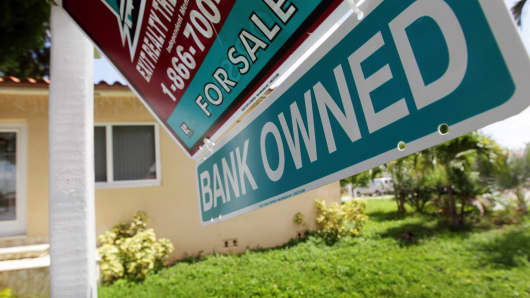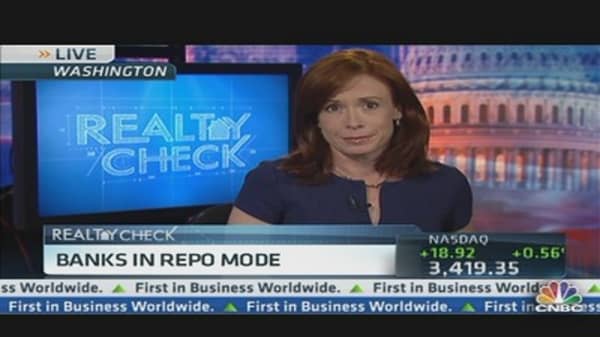"Inventory will likely remain below year-ago levels for a while yet, as builders ramp up capacity and sellers wait to squeeze every drop of equity from their home before listing," Zillow's chief economist Stan Humphries said in a release. "But a corner has been turned. Going forward, as this new supply makes its way to market, we expect the pace of home value appreciation to slow down from unsustainably high annual levels of 5 percent or above to more moderate levels closer to historic norms of 3 percent or 4 percent."
(Read More: Short Supply Has Home Sales 'Squeaking' Out Gains)
While Humphries does not make the connection to rising bank repossessions in the report, his numbers do. They show inventory easing much more on the low end of the market, where distressed homes tend to be.
"The greatest year-over-year decreases in inventory were among more expensive homes, with the availability of top-tier and middle-tier properties each falling 15.7 percent year over year. The number of bottom-tier properties for sale on Zillow nationwide fell only 2.5 percent in early June compared to June 2012."
As more bank-owned homes hit the market, inventories are likely to turn positive again in the near future.
—By CNBC's Diana Olick. Follow her on Twitter @Diana_Olick or on Facebook at facebook.com/DianaOlickCNBC.
Questions? Comments? RealtyCheck@cnbc.com





